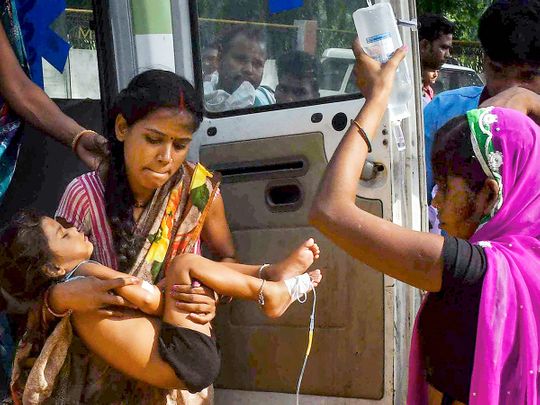
Dubai: Khushi was all of three years.
She grew up in the Indian village of Raja Pakkar, around 60km from Muzaffarpur city in the eastern state of Bihar.
A cheerful child with a shock of unruly hair, Khushi loved playing in the village courtyard.
She was so busy playing last Thursday that she forgot her meagre staple of dal-chawal (lentil and rice) and went to sleep on an empty stomach.
The next morning, she woke up with severe convulsions.
Her father — a temporary wage earner in the construction sector — scrambled for hours to raise the Rs100 (around Dh6) that would take the family on a long and arduous journey from their village, through multiple change of transport and travelling past abundant orchards of lychees, to the Shree Krishna Medical College and Hospital (SKMCH) in Muzaffarpur.
When Khushi and her father eventually reached the hospital, 60km away, it was late afternoon.
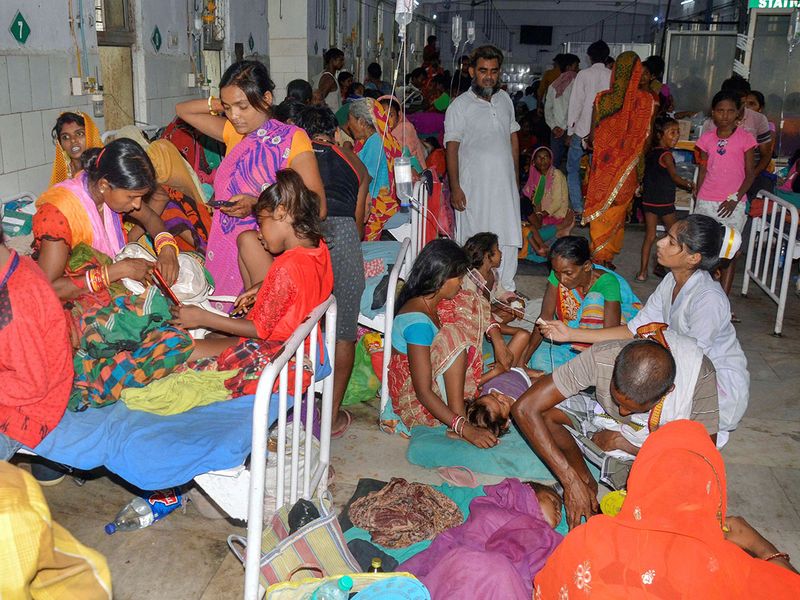
Khushi died two hours after being admitted, one of the 118 children who have died in Muzaffarpur from Acute Encephalitis Syndrome (AES) in the past week.
Her mother clutched at Khushi’s frail frame on the hospital bed and cried.
But even death doesn’t bring peace in Muzaffarpur.
With a constant rush of patients, medical staff have no other option but to take off the dead from the hospital bed as soon as possible and bring in the living — with the faint hope that the next child will survive the deadly inflammation of the brain.
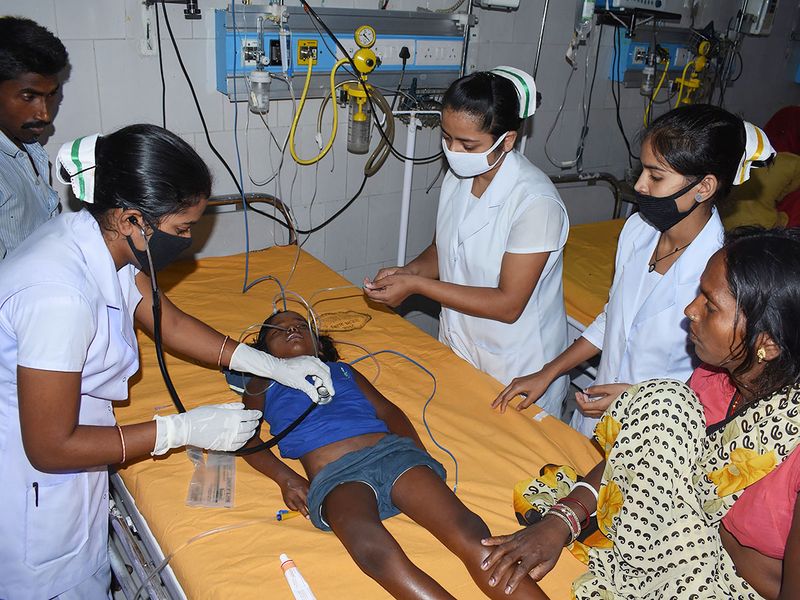
Encephalitis kills hundreds of children in India every year, but this season has been particularly brutal and tragic — specially in Muzaffarpur.
Ask Chatru Sahni — who hails from the suburbs of the city.
When Sahni noticed symptoms similar to Khushi in his elder child, he rushed him to one hospital and then another. Despite the doctors’ best efforts, the child died soon after. It was while mourning the elder child that Sahni noticed his younger child had begun convulsing. Muskan Sahni, too, passed away within days.
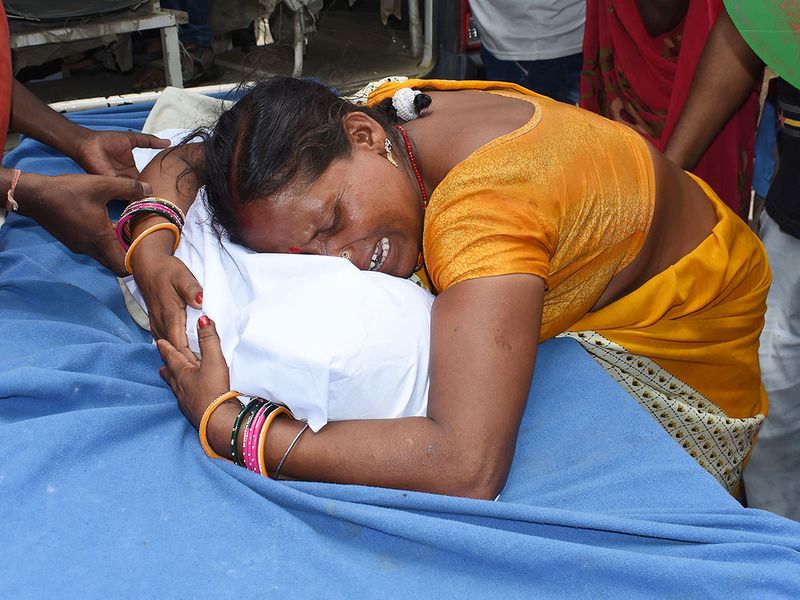
The media in India is replete with similar stories of horror and heartbreak. While Huffington Post brought Khushi’s story to light, it was NDTV which spoke to Chatru Sahni.
Hospitals in the district are bursting at the seams trying to cope with the outbreak. Many families rush their children to the same hospital — mainly the 34-bed SKMCH — as everybody else, leaving other emergency facilities unutilised. Once at the crowded hospital, several patients end up sharing beds — with up to four children per bed. Overworked government doctors and nurses walk past as wails and shrieks fill the hospital halls and ambulances ferry bodies and grieving families back to their villages.
There has also been outbursts of anger on the streets.
Some have confronted Bihar chief minister Nitesh Kumar for visiting SKMCH only after the death toll passed 100 children. Others have filed a petition with the Indian Supreme Court, alleging that the Muzaffarpur deaths were “a direct result of negligence and inaction” in handling the outbreak.
What is encephalitis?
Encephalitis is an inflammation of the brain, caused by any one of a number of viruses. Early symptoms can be similar to those of flu, with patients suffering from high temperatures or headaches. But symptoms can worsen within hours, and can include serious complications like seizures, paralysis and coma.
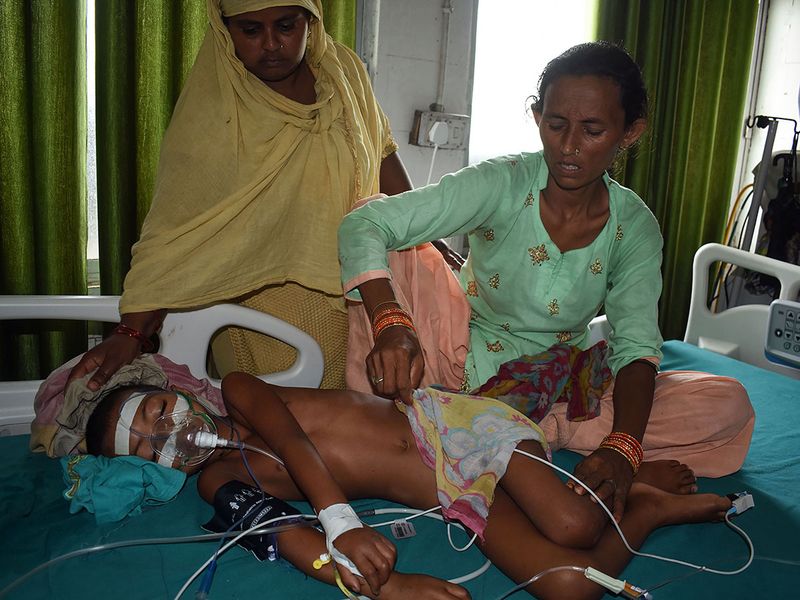
Why does encephalitis only hit Muzaffarpur?
A common sight for the past decades, health experts have long been confounded by the annual encephalitis outbreak in Bihar’s Muzaffarpur district. The disease seems to affect mostly children from impoverished rural families, and has often been attributed to natural toxins found in lychees — which grow in abundance all around the district. Medical experts and sociologists have suggested that it’s a fatal combination of the lychee orchards, the relentless heatwave in the area and dire poverty which lead to a regular outbreak of the deadly disease in Muzaffarpur every year.
So how does eating lychees on empty stomach lead to brain fever?
Although several studies have pointed to a connection between malnutrition and a toxin found in lychees, experts now suggest that the fruit itself may not be the cause of the illness but the fact that poor children go to bed on an empty stomach after eating it. Doctors have noticed that more affluent children are hardly among the victims of encephalitis. In simple terms, malnourished children from impoverished families end up roaming around the district during the day — in the middle of a crippling heatwave — and keep eating lychees to fill their stomach. Then they go home and go to bed without having a proper meal — in most cases because their parents can hardly afford one.
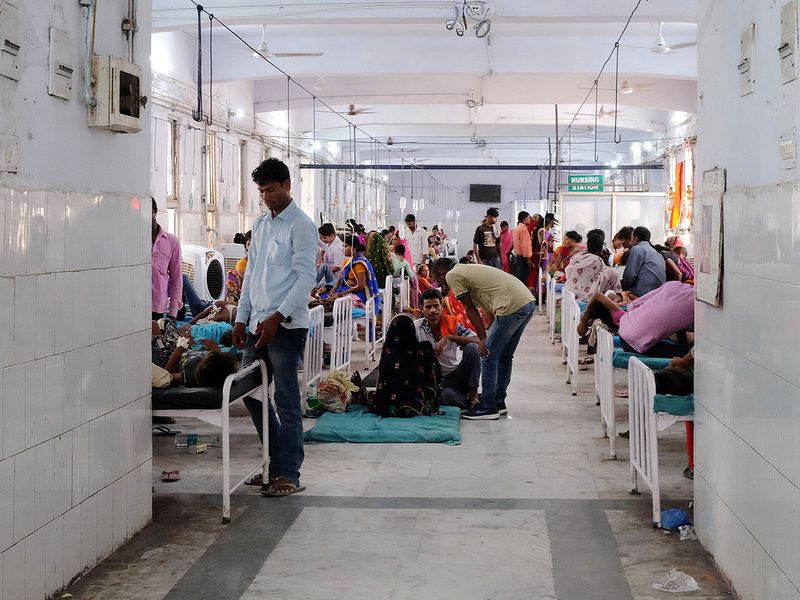
What is the science behind the lychee link?
In a study published in Lancet, a panel of doctors who studied 390 children in Muzaffarpur found that the lychees that they ate contained the toxin hypoglycin A, an amino acid that can disrupt metabolism and block the body’s ability to produce enough blood sugar during the night. During the morning, the body has a natural tendency for blood sugar to dip due to several hours of zero food intake, though the brain needs normal levels of glucose in the blood to function normally. Undernourished children who had gone to sleep without a meal at night thus develop hypoglycaemia. With serious symptoms such as high fever, brain function derangement and seizures, acute hypoglycaemia soon leads to death if not treated on time. That’s the reason why lychees do not cause any harm in well-nourished children, but only in undernourished children.
Are only lychees to blame for the brain fever deaths?
No, what precisely causes the brain inflammation is not clear. According to Alok Ghosh, the Muzaffarpur district magistrate, the link to lychees is inconclusive. He told news agencies that in about half of the more than 400 known cases of encephalitis, the children had not consumed lychees. Three doctors at the Sri Krishna Medical College and Hospital said they thought serious dehydration due to the current heatwave in Bihar — where the temperature has soared past 50C — was also likely to blame. Heat and humidity could be factors, and also genetic predisposition because not all the children in a family fall ill despite the same conditions, along with other potential factors such as chronic poor nutrition.
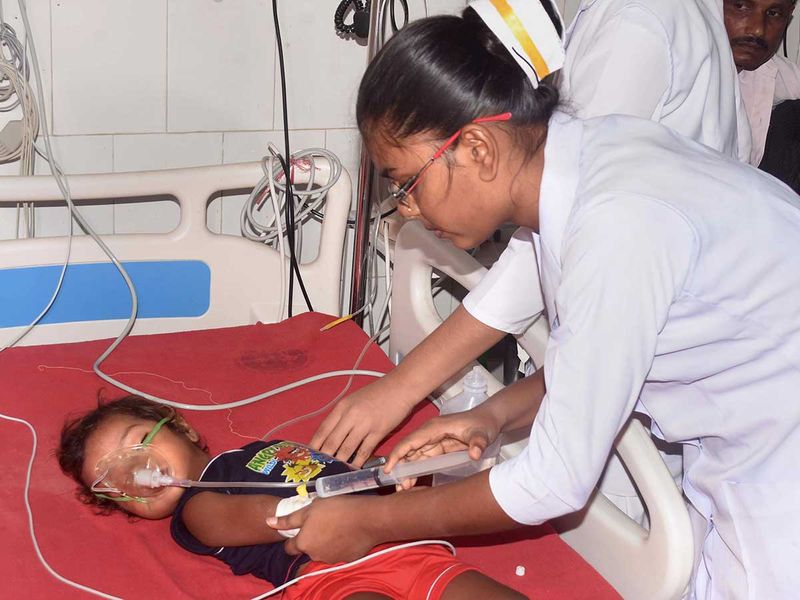
Are there no simple solutions to prevent the child deaths?
The Lancet study, based on the survey carried out by the National Centre for Disease Control in India, recommended that children be treated through an infusion of dextrose within four hours of the onset of encephalitis. Another simple preventive technique is to ensure that no child goes to bed without eating a dinner first — but ironically in the neighbourhoods of Muzaffarpur, that’s not always possible. “To prevent illness and reduce mortality in the region, we recommended minimising lychee consumption, ensuring receipt of an evening meal and implementing rapid glucose correction for suspected illness,” the Lancet report said.
While in theory that sounds really simple, the stark reality is that for families such as Khushi’s, providing a wholesome dinner every evening is still a remote reality.
Khushi’s father had to join back work at the construction company he works for the day after his daughter died.
He had to repay the Rs100 he had borrowed from his employer.








